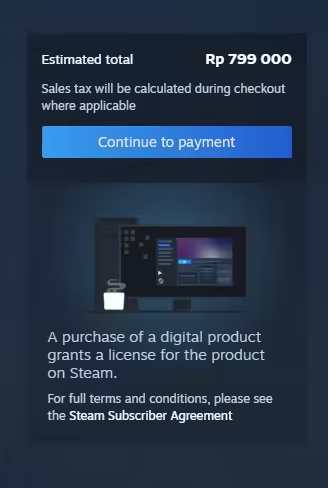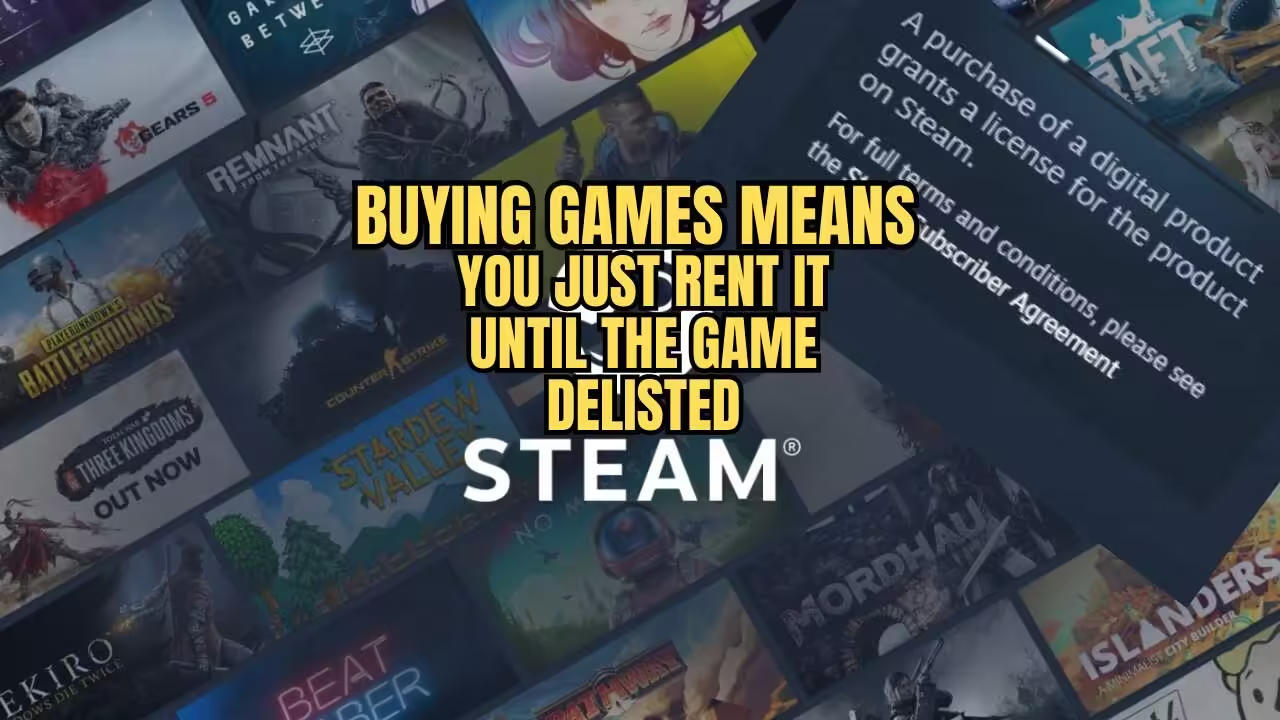As digital ownership continues to be a hot topic among consumers and lawmakers alike, California’s new legislation, AB 2426, has introduced significant changes aimed at improving transparency in digital transactions. Set to take effect next year, this law mandates that online storefronts clearly inform customers that they are purchasing a license to use digital goods rather than owning them outright. In anticipation of this, Valve’s Steam platform has already made changes to its purchase process to comply with the law.
What is California’s AB 2426 and Why is It Important?
The rise of digital content—be it video games, music, movies, or software—has significantly transformed the way people consume media. Unlike physical products, where ownership is clear-cut, digital goods come with a more complex set of terms, often involving licensing agreements rather than outright ownership.
Signed into law by California Governor Gavin Newsom in September 2024, AB 2426 seeks to address this issue by requiring digital storefronts to display a clear notice that customers are not purchasing a permanent or unrestricted ownership of digital goods. Specifically, the law bans the use of terms such as “buy” or “purchase” if they might mislead consumers into believing they own the content outright. Instead, it demands a “clear and conspicuous statement” that explains the nature of the transaction—emphasizing that users are merely acquiring a license.
This legislation is part of a broader push toward consumer protection in digital markets, ensuring that customers understand that the content they are paying for could potentially be revoked or altered in the future.
How Steam is Already Complying with the Law
Although AB 2426 won’t officially take effect until 2025, Valve’s Steam platform has already implemented changes in its shopping cart interface. Steam now includes a disclaimer directly below the ‘Continue to payment’ button, stating, “A purchase of a digital product grants a license for the product on Steam.” This message is coupled with a link to the Steam Subscriber Agreement, where additional information about licensing and user rights is provided.

What’s particularly noteworthy about Steam’s proactive response is that the new disclaimer is not just being applied to purchases made by customers in California or the United States. Valve has decided to roll out this change globally, with users in regions such as the United Kingdom and European Union also seeing the updated message.
The move is indicative of the global nature of digital content sales and how regional legislation—especially from influential markets like California—can have international ramifications. By ensuring early compliance, Valve avoids potential legal complications and enhances transparency across its global user base.
Why is Digital Ownership Such a Controversial Issue?
One of the major catalysts for AB 2426 was a series of incidents where games were revoked from users’ libraries, sparking widespread outrage. Earlier in 2024, Ubisoft quietly began removing access to its popular racing game The Crew from players who had legally purchased it. Although Ubisoft cited licensing agreements and server shutdowns as the reason, the incident brought into sharp focus the ephemeral nature of digital goods.
A similar situation unfolded with PlayStation when they decided to shut down servers for the PS5 shooter Concord, effectively rendering the game unplayable for many. Although refunds were offered in this case, it did little to quell the growing concern among gamers and digital content consumers that the games they “buy” today might disappear tomorrow.
These events led to a resurgence in discussions about video game preservation and digital rights. Advocacy groups like Stop Killing Games have emerged, seeking to challenge these practices through political and legal channels. They argue that consumers should have more control over the digital content they purchase, or at the very least, be properly informed about the limitations.
How AB 2426 Addresses Consumer Awareness
While AB 2426 does not fully address the deeper issues related to digital preservation, it does take an important step toward ensuring that consumers are more informed. Under this new law, sellers can no longer mislead buyers by implying that they own a digital product outright. Instead, they must provide a clear disclaimer at the point of purchase, informing buyers that they are acquiring a license to use the content under specific terms and conditions.
For companies like Valve, this means adjusting their user interface to provide more detailed information upfront. Other platforms that offer digital content—such as PlayStation Store, Xbox Store, and Epic Games Store—are likely to follow suit before the law comes into force.

